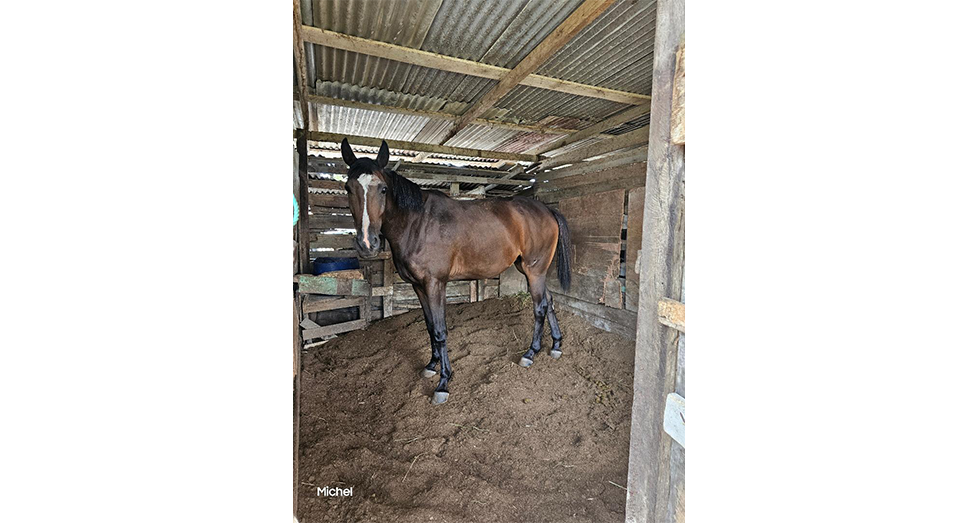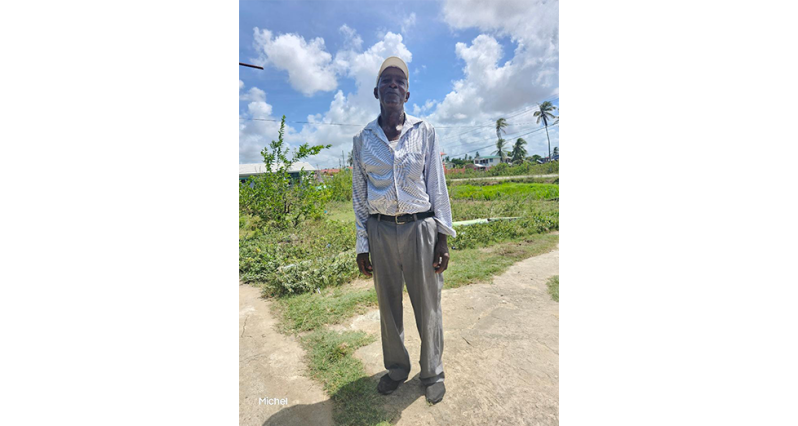AMIDST the evolving landscape of D’Edward Village, West Coast Berbice — where commercial activities and modern housing developments are reshaping the once-agricultural community — one man continues to uphold the village’s proud tradition of livestock rearing and fresh cow’s milk production. That man is Dennis Thomas, a 67-year-old farmer whose unwavering dedication to animal husbandry has earned him the respect of his peers and the gratitude of his community.
A proud son of D’Edward, Thomas represents a long lineage of cattle farmers whose livelihoods and traditions are deeply rooted in the savannahs and settlement lands of the village. His family has been rearing cattle for generations, relying on the lush, untamed backlands that have long supported Berbice’s livestock industry. Over the years, Thomas has skilfully combined traditional farming wisdom with modern scientific approaches, ensuring that his farm remains productive, sustainable, and competitive in an evolving agricultural landscape.
Although Thomas’s approach to farming is guided by decades of traditional knowledge, he is not one to shy away from innovation. A few years ago, he became a beneficiary of the Artificial Insemination (AI) Programme spearheaded by the Guyana Livestock Development Authority (GLDA) — a national initiative aimed at improving animal genetics and productivity across the livestock sector.

Before introducing AI on his farm, Thomas often struggled with low milk yields, smaller carcass weights, and reduced growth performance in his herd.
“We used to have good cows, but the production was limited. The animals were smaller, and milk production was not always consistent,” he recalled.
Through the GLDA’s AI intervention, Thomas introduced superior breeds, such as Holstein and Beefmaster, which were crossbred with his native Zebu cattle. The results have been transformative.
“Since the AI project, I’ve seen tremendous improvements,” he said proudly. “The cows are producing more milk, the meat quality is better, and the animals are healthier and larger.”
Thomas now manages a herd of approximately seventy head of cattle, with a mix of traditional and improved breeds. He plans to take his farm’s genetic improvement even further by embracing embryo transfer technology, a next step he is currently exploring with GLDA’s technical team.
A strong advocate for natural feeding practices, Thomas proudly maintains a grass-fed system for all his animals. He avoids using commercial stock feed as much as possible, relying heavily on nutrient-rich grasses grown in the savannahs and rice-field backlands of Blairmont Village. During the rice-harvesting off-season, he allows his cattle to graze freely in the fields, rotating them as needed to keep the land fertile and sustainable.
“I believe animals should eat what nature provides,” Thomas explained. “The quality of the milk and meat depends on what they eat, and my customers can taste that freshness and purity.”
Currently, his lactating cows produce approximately 1 gallon of milk per day, which his sibling sells fresh within the community. The milk has become a staple for many D’Edward Village residents who appreciate its quality and natural taste.
His herd also includes several young bulls, which he raises primarily for meat. Once they reach a live weight of about 280 to 300 pounds, he sells them to local butchers or buyers from as far as Essequibo at a rate of $500 per pound. He expressed his pleasure with the quality of animals he now produces for beef production, which allows him to negotiate with potential buyers without any hassle.
In addition to his thriving cattle operation, Thomas’s farm is a vibrant ecosystem of domestic animals. He rears horses — used mainly for managing cattle in the backlands — as well as pigs, sheep, goats, ducks, chickens, and turkeys. His yard is also home to a few beloved cats and dogs, which he regards as part of the family.
He currently owns fifteen horses, all in excellent condition and well-kept in his stables. Every inch of his property is utilised to the fullest, reflecting his meticulous care and love for animals.
“I treat my animals like my children,” he said with a smile. “They provide for me, so it’s only right that I take good care of them.”
With a warm smile and glee in his voice, Thomas credited much of his recent success to the technical support and regular farm visits by GLDA Region Five Livestock Extension Officers and Mr. Sohan, GLDA Region 5 AI Technician, who have assisted with animal health, feeding regimes, and genetic improvement strategies. He also participates in the agency’s Traceability Programme, which monitors livestock farms and animals using tags, record-keeping, and active farm surveillance to ensure food safety and disease control.
“The traceability system helps me monitor my progress and gives the consumers the confidence that our local meat and milk are safe for the market,” he said. “It’s a good thing for both farmers and consumers.”
Thomas’s decades of experience — gained from working on large cattle ranches, attending training workshops, and exchanging knowledge with fellow farmers — have made him a respected mentor within the livestock community. Although his children have chosen different career paths, he continues to pass on his knowledge to younger farmers in D’Edward who share his enthusiasm for agriculture.
Despite the modernisation sweeping through D’Edward Village, Mr. Thomas remains deeply connected to the land, the animals, and the traditions that have defined his life. For him, the preservation of livestock excellence is more than just farming as an occupation — it is a lifelong passion and a family legacy.
His integration of modern genetic technologies like artificial insemination with traditional livestock rearing practices demonstrates that science and heritage can coexist harmoniously in shaping Guyana’s agricultural future.
“I’ve seen farming change over the years,” Thomas reflected. “But one thing stays the same… if you love your animals and take care of them, they will take care of you.”



.jpg)








